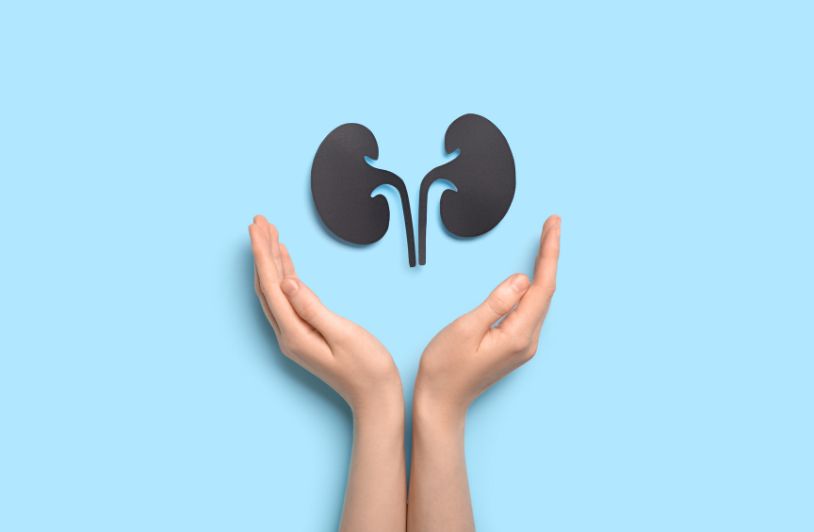A nephrologist is a specialist who spends significant time in kidney wellbeing and kidney sickness. In clinical practice, the term renal is utilized to depict anything including, influencing, or situated close to the kidneys, so best nephrologists in Delhi are frequently alluded to as renal trained professionals.
Nephrology is a subspecialty of inner medication. A nephrologist needs to finish inner medication preparing prior to chasing after an extra partnership in nephrology. As per the American Society of Nephrologists (ASN), there are a little more than 10,000 nephrologists effectively rehearsing in the United States.
Nephrology likewise includes treating fundamental circumstances that influence the kidneys (like diabetes and immune system infections) and foundational illnesses that happen because of kidney sickness (like hypertension).
While it’s conceivable that you might see a nephrologist in a clinic setting, you’re bound to see a nephrologist in a confidential practice or dialysis office.
Conclusion
Nephrologists are normally brought in when there are indications of kidney injury or illness. For example, individuals are frequently alluded to a nephrologist after a urinalysis gets an irregularity, like hematuria (blood in pee), proteinuria (overabundance protein in pee), or an unevenness of electrolytes or urinary pH. In different cases, obvious side effects of kidney sickness might be seen.
Overall, infections can be delegated either intense or constant:
Intense kidney injury (AKI) is the sudden loss of kidney capability that creates over a brief timeframe. The side effects can shift by the basic reason yet may incorporate the quick beginning of weariness, loss of craving, migraine, queasiness, spewing, expanded thirst, strange heart rhythms, flank agony, and rash. This ailment is of brief term, quickly moderate, and needing earnest consideration.
Ongoing kidney illness (CKD) is portrayed by the slow loss of kidney capability over a time of months or years. From the get-go, there might be no side effects. Afterward, weakness, edema (leg expanding), muscle cramps, regurgitating, loss of craving, determined tingling, chest torments, windedness, or disarray might create.
Conditions Treated
Nephrologists are by and large centered around essential kidney problems — that is, those beginning in these significant organs.
Albeit the counteraction and the executives of early kidney infection are inside the extent of nephrology practice, nephrologists are generally called upon to help with additional mind boggling or high level renal issues.
These may include:
Amyloidosis, the development of strange proteins, called amyloids, in different organs of the body (counting the kidneys)
Intrinsic kidney abnormalities
Diabetic nephropathy, the main source of kidney sickness
Glomerulonephritis, an illness that influences small units in the kidneys, called glomeruli, where blood is cleaned
Lupus nephritis, irritation of the kidneys brought about by the immune system sickness lupus
Nephrotic condition, a problem that makes your body discharge an excess of protein in your pee
Polycystic kidney sickness, a hereditary problem in which groups of pimples foster inside the kidneys
Pyelonephritis, a sort of urinary lot disease where one or both kidneys become tainted
Renal disappointment, in which the kidneys neglect to channel side-effects from the blood sufficiently
Renal block, brought about by kidney stones, cancers, an expanded prostate, and different circumstances
Renal stenosis, the limiting of courses to the kidney, commonly connected to persistent hypertension
Procedural Expertise
A nephrologist is able to give all features of treatment of kidney infection, either essential or optional. This might include prescriptions (counting ACE inhibitors, statins, diuretics, or calcium and vitamin D enhancements) and the board of way of life factors (counting diet, smoking, and weight reduction).
Nephrologists can likewise perform, administer, or aid different methods to either oversee or treat kidney problems.
These include:
Percutaneous needle biopsy: The inclusion of a needle through the mid-region to get kidney examples
Kidney ultrasonography: Using ultrasound to assist with checking an illness or guide specific operations
Bone biopsy to screen and oversee bone issues related with kidney disease or CKD
Kidney dialysis, including hemodialysis, peritoneal dialysis, and ceaseless renal substitution treatment
Kidney transfers
Subspecialties
Some nephrologists spend significant time in a smaller field of training. These regularly include extra preparation and examination associations.
Among the absolute most normal nephrology subspecialties are:2
- Basic consideration nephrology
- Kidney dialysis (counting arteriovenous fistula medical procedure)
- Interventional nephrology (including ultrasound-directed methods)
- Onconephrology (including malignant growth related kidney infections)
- Pediatric nephrology
- Kidney transplantation
- Preparing and Certification
A doctor can spend significant time in nephrology through two different instructive ways. In the two cases, they would initially finish clinical school as a specialist of medication (MD) or specialist of osteopathic medication (DO) and afterward spend something like five years in specialty preparing.
To work in grown-up nephrology, the specialist would finish a three-year residency in inner medication and afterward a partnership in nephrology of something like two years.
To have practical experience in pediatric nephrology, a specialist would finish either a three-year pediatric residency or a four-year joined inner medication/pediatrics residency, trailed by a three-year cooperation in pediatric nephrology.
After the culmination of preparing, the specialist is qualified to take the board test and be confirmed in nephrology by either the American Board of Internal Medicine (ABIM) or the American Osteopathic Board of Internal Medicine (AOBIM). Some nephrologists go on with extra partnerships in nephrology subspecialties.

